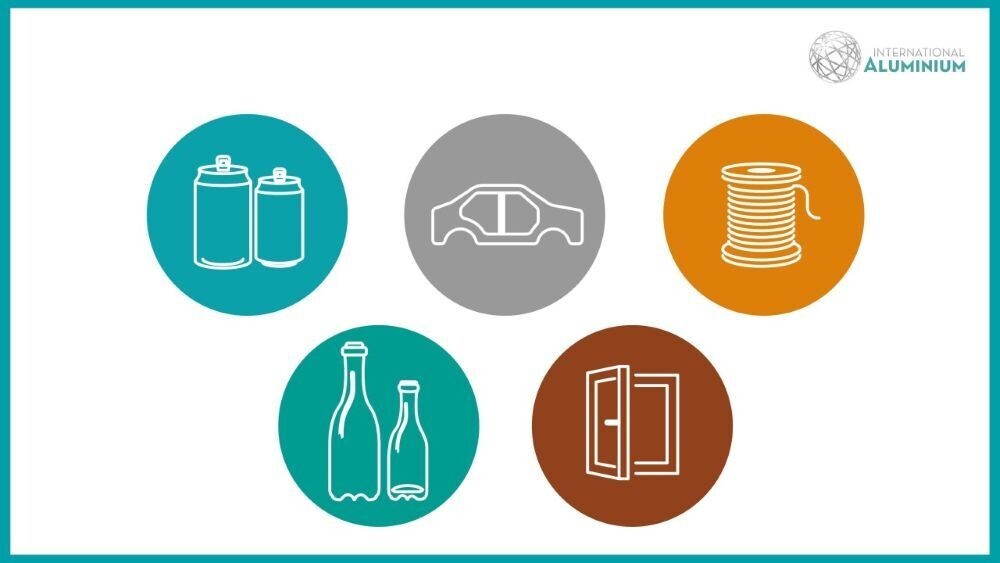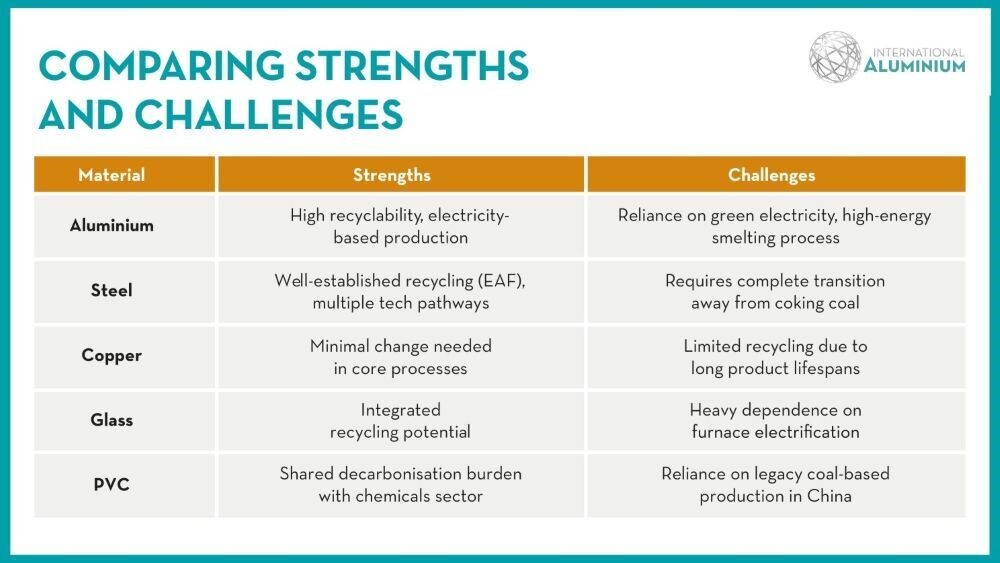

A study carried out by Eunomia and commissioned by the International Aluminium Institute (IAI) has revealed that renewable electricity and recycling will be the key drivers of emissions reductions in the aluminium industry. Titled as Decarbonisation Pathways in Aluminium Vs. Competing Materials, the research underscores the role of aluminium in industrial decarbonisation, comparing its emissions reduction pathways to those of steel, copper, container glass, and PVC.

The study revealed that renewable electricity and recycling will be the key drivers of emissions reductions in the aluminium industry. The research highlighted that combining renewable electricity and recycling will be the primary driver of emissions reductions for aluminium. In contrast, copper’s decarbonisation will rely mainly on renewable electricity, while steel and container glass require technological advancements, and PVC’s pathway depends heavily on recycling.
The study examines process emissions and energy consumption across material value chains, offering a comparative view of their net-zero trajectories. It stresses the urgent need for investments in green electricity, anode replacements, and recycling infrastructure to fully unlock aluminium’s decarbonisation potential.
The research highlights notable regional differences in decarbonisation challenges and opportunities. In North America, infrastructure gaps hinder post-consumer recycling efforts, while China’s heavy reliance on coal poses significant obstacles to reducing emissions in aluminium and steel production. Meanwhile, Latin America’s high emissions from copper mining present a major opportunity for global impact through cleaner extraction processes.

The findings include:
However, achieving full decarbonisation will require –
Marlen Bertram IAI’s Director of Forecasts and Scenarios, noted, “This study reinforces aluminium’s potential as a leading material in the low-carbon transition. By addressing electricity decarbonisation, collection and sorting of scrap and investing in new technologies, aluminium can set a benchmark for industrial sustainability.”
Image Source: IAI Linkedln



Responses






